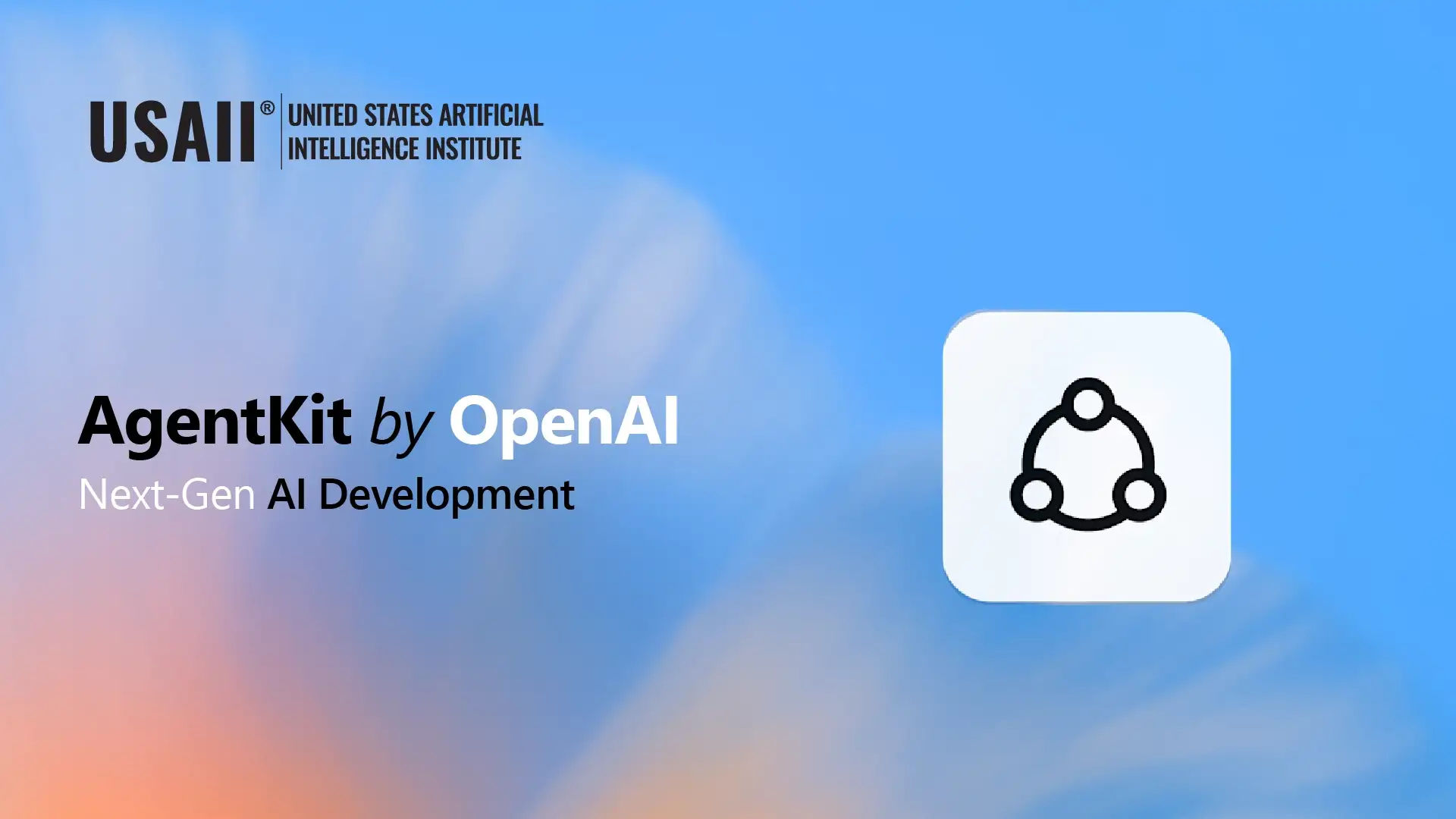
Artificial Intelligence is continuously changing how we build and engage with technology. OpenAI announced the official launch of AgentKit, a robust new toolkit designed to help developers build, test, and deploy AI agents more efficiently, on October 6, 2025.
Including ChatGPT 5 and OpenAI's most recent AI models, AgentKit enables the development of agentic AI systems, which are intelligent agents capable of reasoning, making autonomous decisions, and performing multi-step tasks. With the addition of Agent Builder (beta), Connector Registry (beta), and ChatKit (generally available), OpenAI is allowing developers a structured platform to experiment with autonomous AI in real-world applications. Let’s explore more about it.
What Is OpenAI’s AgentKit?
AgentKit is a new developer framework from OpenAI that enables the development of AI agents, self-sufficient systems that can reason, decide, and undertake multi-step tasks, limited only by human input and oversight.
The toolkit integrates seamlessly with OpenAI's models, enabling developers to build real-world applications more quickly and easily. AgentKit is not only about building agents; it’s about shipping agents. It provides built-in APIs, memory modules, and evaluation tools to support developers in designing, testing, and deploying their AI agents into production environments.
Example of an AI Agent built with OpenAI’s AgentKit analyzing data and providing actionable recommendations.
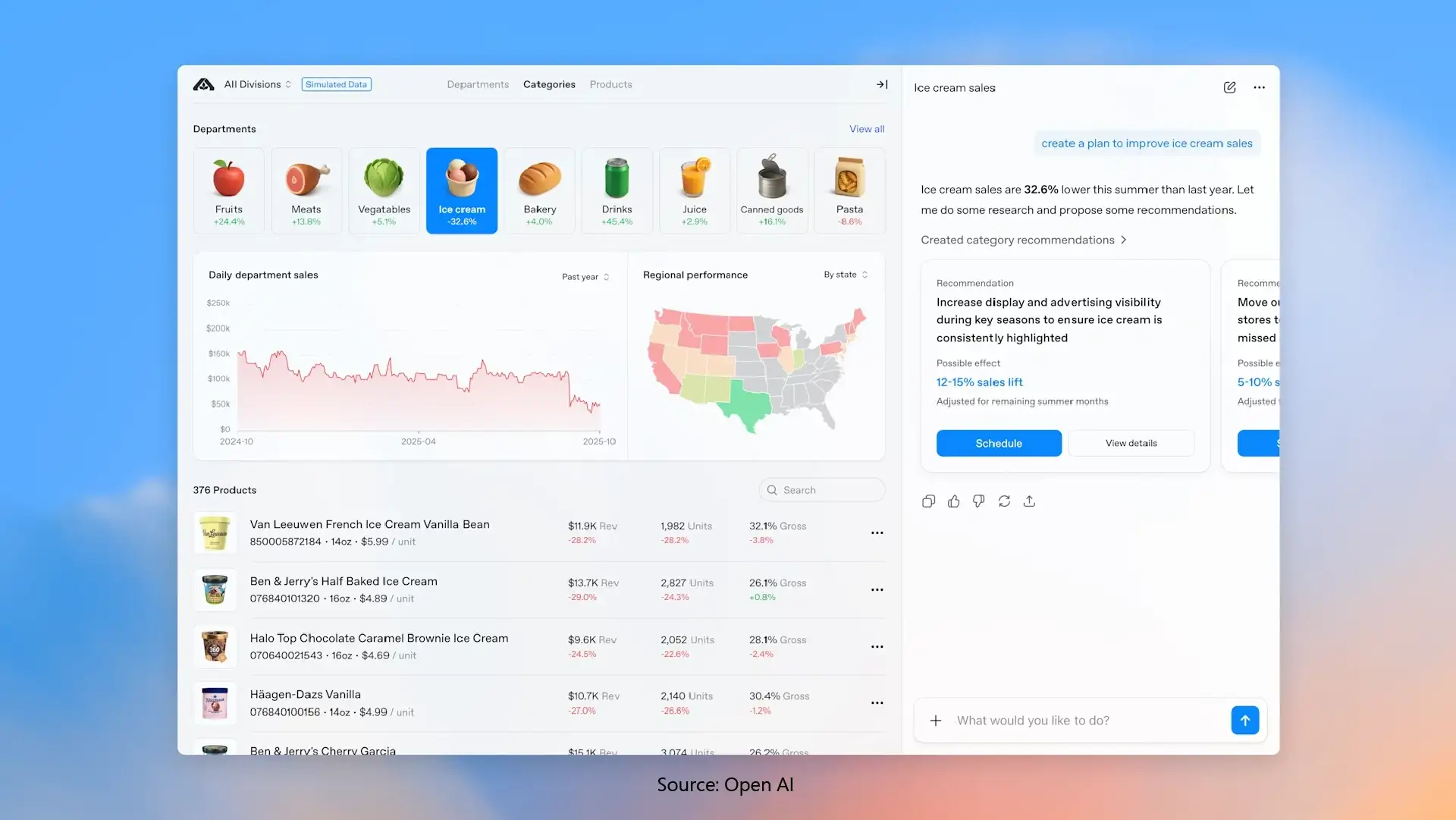
Key Features of AgentKit
OpenAI has made AgentKit powerful and accessible for developers of all technical experience, with some of its distinct features including:
Agent Builder (Beta): Create agents without any coding experience by dragging and dropping pre-built blocks. It’s not just for technical users; perfect for non-technical users.
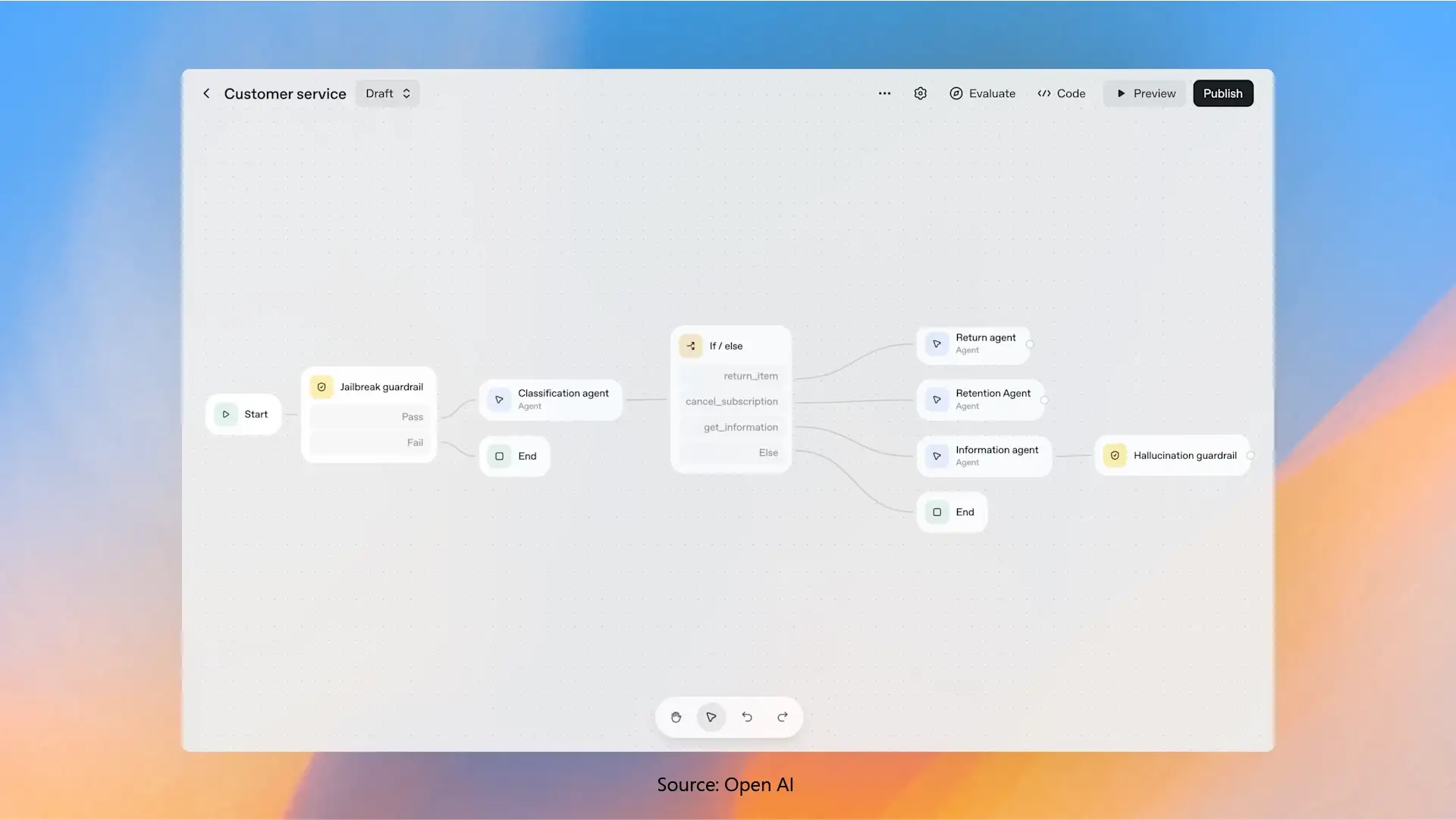
Connector Registry (Beta): Manage integrations to other tools such as Google Drive, Dropbox, and Slack. We will be rolling out the Connector Registry for API, ChatGPT Enterprise, and Edu customers with a Global Admin Console.
ChatKit: Allows developers to embed chat interfaces into their products and applications for a more interactive user experience.
Evals: Measure how well your agent is performing, automatically evaluate the responses and grade the reasoning trace, and optimize your prompts for maximum value.
Reinforcement Fine-Tuning (RFT): Customize reasoning models for specific tasks. Available for o4-mini and in private beta for GPT-5.
Why AgentKit Matters
So far, the process of building reliable AI agents has required high levels of coding, prompt engineering, and API management. OpenAI is shifting that process with AgentKit by adding agentic intelligence to developer-friendly tools where agents can act autonomously and reason at GPT-5 levels.
This is a move from prompt based AI to agent-based AI, where systems can make decisions based on goals. Developers can create agents that do things like:
Enhancing Agent Performance with Evals and Reinforcement Fine-Tuning (RFT)
Constructing trustworthy, production-ready agents is not just about smart reasoning; it needs continuous evaluation and optimization. OpenAI’s latest version of Evals makes this much more manageable for developers. Among these new features are new tools to build datasets, capture agent workflows, automatically optimize prompts, and even test third-party models.
Collectively, these new features support developers in assessing how well their agents think, reason, and act in the context of complex tasks.
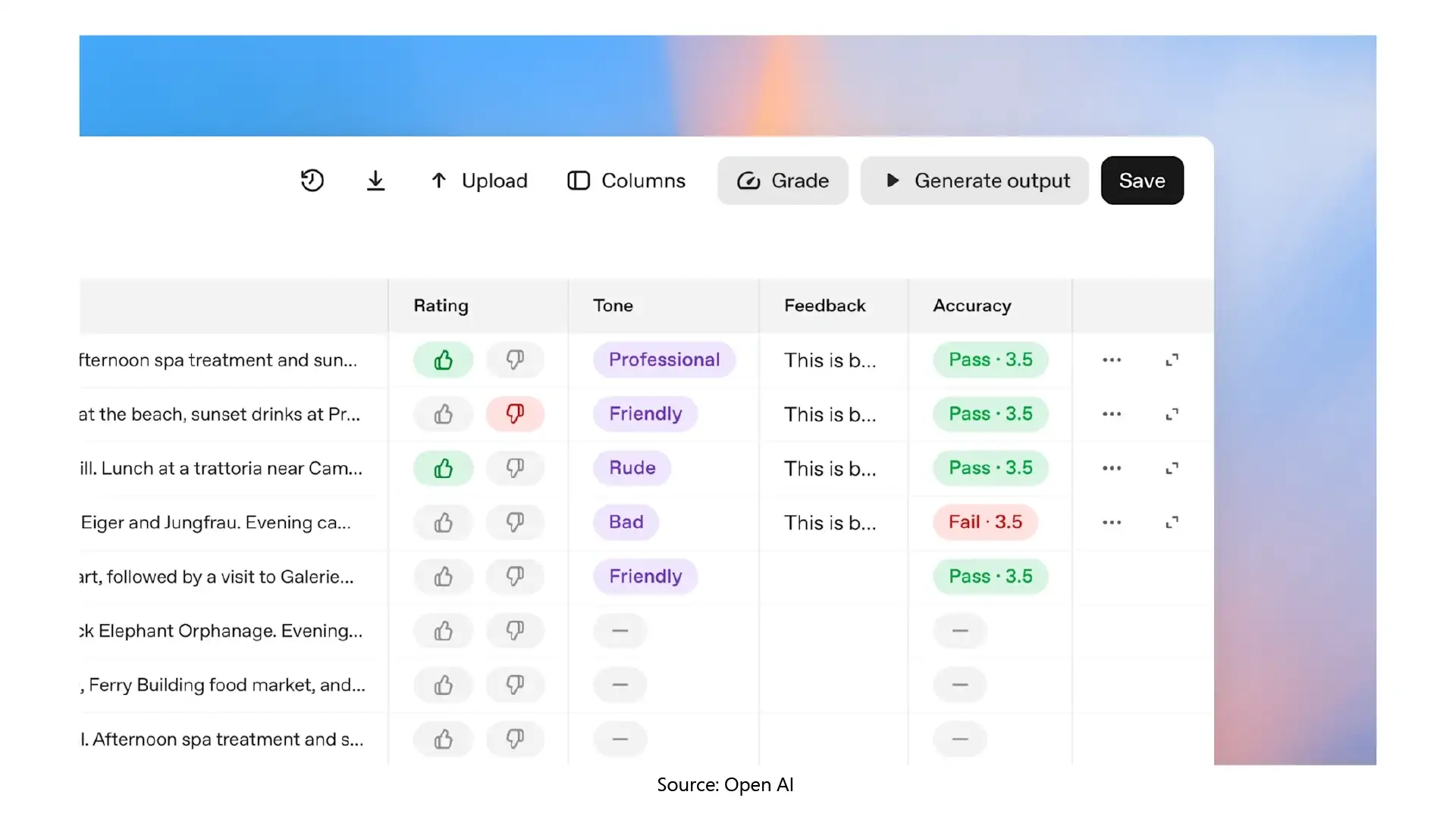
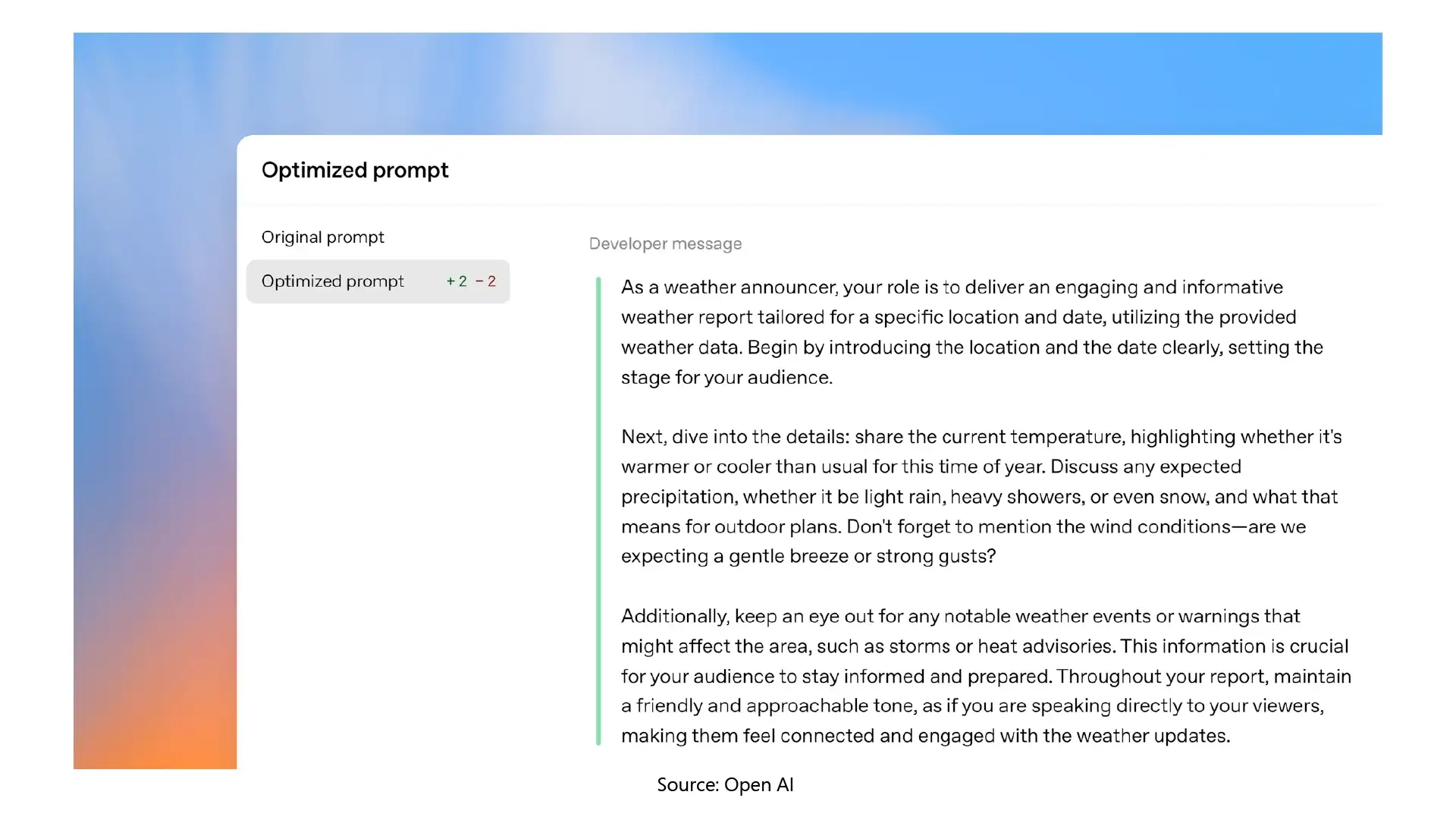
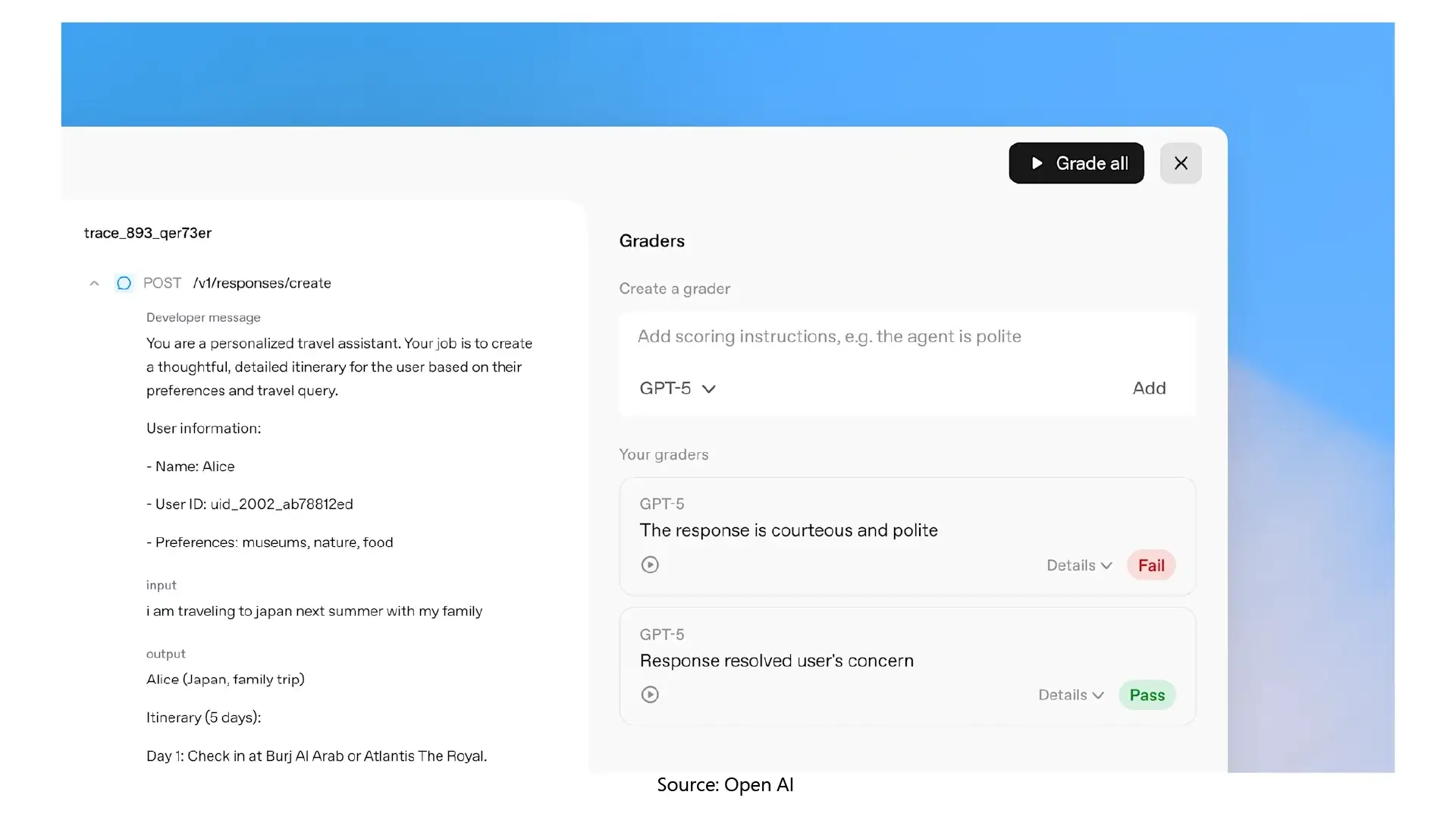
Following agent evaluation, developers can proceed with Reinforcement Fine-Tuning (RFT), which enhances performance via adaptive learning. RFT ensures that each iteration outperforms the previous one by honing an agent's reasoning and decision-making abilities for specialized tasks.
Two notable improvements are as follows:
Together, Evals and RFT serve as the cornerstone of agentic intelligence improvement, assisting programmers in creating AI agents that are more reliable and capable in practical applications.
How Developers Can Use AgentKit
Depending on their objectives and technical proficiency, developers can use AgentKit in a variety of ways:
Since these tools are now covered by the regular OpenAI API pricing, developers can begin exploring without incurring extra fees. ChatKit and Evals are now broadly accessible, Agent Builder is in beta, and Connector Registry is being rolled out progressively for Enterprise and Edu clients.
Additionally, OpenAI intends to soon provide choices for agent deployment and a stand-alone Workflows API.
Integration with ChatGPT and OpenAI’s Ecosystem
AgentKit is not a standalone tool; it is meant to seamlessly integrate into OpenAI's growing ecosystem. It works within ChatGPT, OpenAI APIs, and third-party AI platforms, enabling agents to access and utilize live data in real time.
This means that developers can leverage OpenAI's models and agentic frameworks to deliver tailored, contextual experiences across apps and devices. Imagine an agent powered by ChatGPT 5 that can book meetings, write reports, and collaborate with other OpenAI agents.
As articulated in USAII®’s recent article, "Open AI’s GPT-5 Revolutionizing AI Chatbots and Beyond”, GPT‑5’s advancements in reasoning, multimodal awareness, and extended memory bring us much closer to agents that behave like partners rather than merely assistants. By combining the capabilities of GPT‑5 with the developer tools in AgentKit, we are not just creating smarter chatbots, but truly agentic systems that can think, act, and evolve autonomously
A Step Toward the Future of AI Development
With the introduction of AgentKit, OpenAI has taken a major step toward redefining what it means to be an AI developer. AgentKit provides developers with a toolkit that essentially abstracts complex agent-building overheads while providing enough flexibility for experimentation, learning, and certification.
For aspiring developers, OpenAI is also facilitating accessibility and performance to create new learning opportunities. For example, any aspiring developer can study Generative AI certifications, Agentic AI certifications, and practical AI prompt engineering practices, all under the umbrella of AI development.
For those looking to formalize their AI skills, the Certified Artificial Intelligence Engineer (CAIE™) program by USAII® provides practical training in AI, machine learning, and NLP. It equips developers to contribute effectively to AI projects and advance their careers in the growing AI landscape.
Conclusion
With AgentKit, OpenAI isn’t just launching a tool; it is providing an entire new generation of developers with the means to build intelligent, active thinking systems. The future of software will not just be applications, but AI agents that can work cooperatively, continue to learn, and constantly improve.
So, whether you've built something before or you are a novice prompt engineer, it is time to get started. AgentKit makes it easier than ever to go from a vision to action.
Follow us: